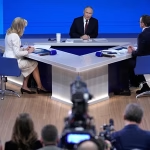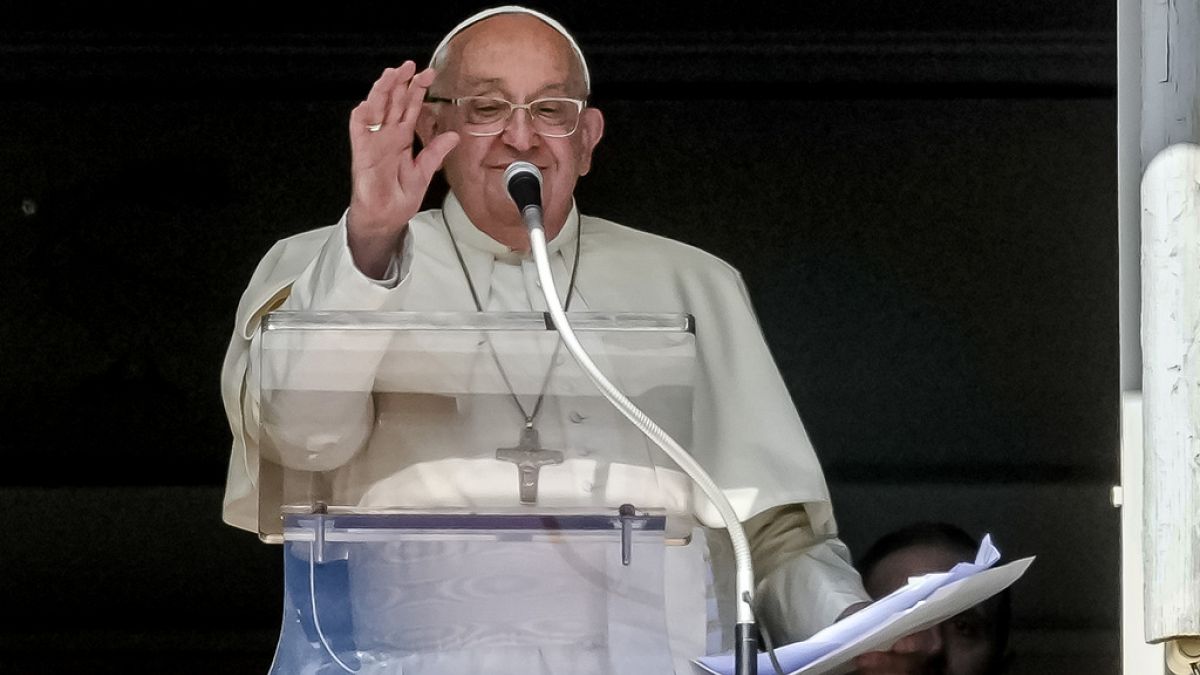Pope Francis recently appointed Bishop Mykola Bychok as the head of the Ukrainian Greek Catholic Church in Australia, adding another cardinal to the College of Cardinals. This move is seen as a recognition of the ongoing war in Ukraine, with Bychok being the youngest nominee and the only cardinal from Ukraine. The pope’s decision has sent a subtle political message as Russia’s war in Ukraine continues, with the country’s ambassador to the Holy See praising the choice. The College of Cardinals will see an increase in size with the addition of Bychok and other new cardinals who will be receiving their red hats in a ceremony on December 8.
The appointment of Bychok is part of Pope Francis’s effort to diversify and expand the College of Cardinals, ensuring that voices from different regions of the world are represented. Among the new cardinals named include heads of major dioceses and archdioceses in South America, as well as representatives from North America, Asia, and Africa. By appointing cardinals from various regions, Pope Francis is emphasizing the universality of the Catholic Church and allowing leaders from the church’s peripheries to have a seat at the table. This move signifies the Pope’s commitment to inclusivity and diversity within the college of cardinals.
The appointment of Bychok and other cardinals reflects Pope Francis’s strategy of shaping the future leadership of the Catholic Church through the selection of cardinals who will one day elect his successor. By choosing new cardinals from different regions of the world, the Pope is ensuring that the College of Cardinals represents the global nature of the Church. This approach marks a departure from previous popes and underscores Pope Francis’s desire for a more inclusive and diverse leadership within the Catholic Church.
The nomination of Bychok as a cardinal in Australia instead of the head of Ukraine’s Greek Catholic Church in Kyiv also carries political significance in light of Russia’s ongoing war in Ukraine. Pope Francis’s decision to appoint a Ukrainian cardinal is seen as a show of solidarity with Ukraine and a subtle message of support amidst the conflict. By appointing Bychok, the Pope is sending a message of support to the Ukrainian community worldwide and highlighting the importance of the situation in Ukraine on the global stage.
The addition of new cardinals to the College of Cardinals will bring the number of voting-age cardinals to 142, surpassing the usual cap of 120. This increase in the size of the College reflects Pope Francis’s desire to maintain a robust and diverse body of cardinals as existing members age out. By expanding the College of Cardinals, the Pope is ensuring that a greater number of voices and perspectives are represented in the leadership of the Catholic Church. This move aligns with Pope Francis’s vision for a more inclusive and representative hierarchy within the Church.
Overall, the appointment of Bishop Mykola Bychok and other new cardinals by Pope Francis is a significant step in shaping the future leadership of the Catholic Church. By diversifying the College of Cardinals and ensuring representation from different regions of the world, the Pope is emphasizing the global nature of the Church and the importance of inclusivity within its leadership. The appointment of Bychok as a cardinal from Ukraine also carries political significance in the context of the ongoing war in Ukraine, demonstrating the Pope’s support for the Ukrainian community. This move underscores Pope Francis’s commitment to building a more inclusive, diverse, and representative leadership within the Catholic Church.











